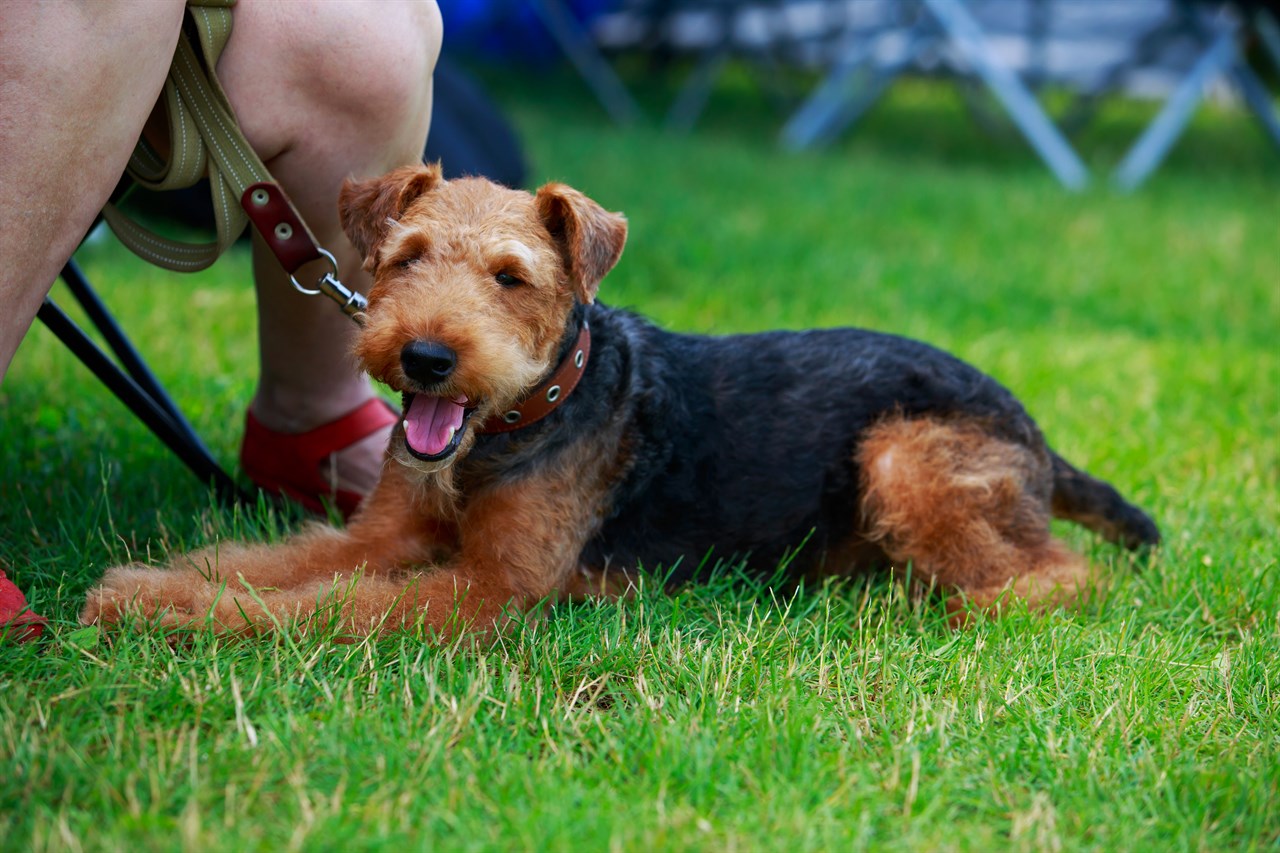The Welsh Terrier: A Spirited Companion

History
The Welsh Terrier, often referred to as the "Welshie," is a spirited and tenacious breed with roots tracing back to Wales. Its ancestry is believed to be linked with the Old English Black and Tan Terrier, which was a popular choice for hunting small game. The Welsh Terrier was selectively bred for its ability to hunt and exterminate vermin, making it an invaluable companion for farmers and hunters.
In the 19th century, the Welsh Terrier became recognised as a distinct breed. Its charming personality and adeptness in various tasks quickly gained popularity beyond Wales. As a result, it was officially recognised by the Kennel Club in 1887.
Also Known As
The Welsh Terrier is also known as the Welshie by lovers of the breed.
Breed Group and Size
The Welsh Terrier belongs to the Terrier Group, known for its energetic and determined nature. Terriers were originally bred for hunting and digging, traits that are often still evident in modern breeds. The Welsh Terrier is a small to medium-sized dog, with males typically standing between 39 to 41 centimetres tall at the shoulder, and females slightly smaller.
Coat, Colour, and Appearance
One of the distinctive features of the Welsh Terrier is its double coat. The outer coat is wiry and dense, providing protection from the elements, while the undercoat offers insulation. The typical coat colours are black and tan, with the black forming a jacket-like appearance and tan markings on the legs and head.
In terms of appearance, the Welsh Terrier has a square build and a keen expression. Its head is rectangular with a bushy beard, moustache, and expressive dark eyes. The erect ears and docked tail contribute to its alert and confident demeanour.
What dog looks like an Airedale but smaller?
Often, the Welsh Terrier is likened to a smaller version of the Airedale Terrier. Both breeds share similar colour patterns, with a black jacket and tan markings. The Airedale, however, is larger, standing tall in the Terrier Group. The Welsh Terrier's compact size makes it an excellent choice for families and individuals living in smaller spaces.
How long should you walk a Welsh Terrier?
The Welsh Terrier is an energetic and intelligent breed that requires regular exercise to stay physically and mentally healthy. A general guideline is to provide at least 30 to 60 minutes of exercise each day. This can include walks, playtime, and engaging activities that stimulate their sharp minds.
However, individual needs may vary based on factors such as age, health, and overall energy levels. Always observe your Welsh Terrier's behaviour and adjust the exercise routine accordingly. A tired Welsh Terrier is a happy Welsh Terrier, and regular walks and play sessions also contribute to maintaining a healthy weight and preventing behavioural issues.
Conclusion
In conclusion, the Welsh Terrier is a delightful companion with a rich history rooted in its working origins. Its distinctive appearance, combined with its friendly and lively nature, makes it a popular choice for families and individuals alike. Understanding the breed's history, group, size, coat, and exercise needs is crucial for providing the best care and companionship to this spirited and lovable terrier.
Continue reading our Welsh Terrier in-depth articles
- Welsh Terrier Temperament and Behaviour
- Welsh Terrier Training and Socialisation
- Welsh Terrier Toilet Training
- Welsh Terrier Barking Habits
- Welsh Terrier Grooming Requirements
- Welsh Terrier Shedding Behaviour
- Welsh Terrier Sleeping Behaviour
- Welsh Terrier Diet and Feeding Requirements
- Welsh Terrier Average Lifespan
- Welsh Terrier Exercise Requirements
- Welsh Terrier Common Health Issues
- Welsh Terrier Suitability Guide
- Welsh Terrier Advantages
- Welsh Terrier Disadvantages
- Welsh Terrier Cost to Buy and Own
- Welsh Terrier Clubs and Links
- Selling Welsh Terrier Puppy Litters and Dogs
- Buying Welsh Terrier Puppies and Dogs
- Welsh Terrier Alternatives
Welsh Terrier puppies for sale
- Find Welsh Terrier puppies for sale in ACT
- Find Welsh Terrier puppies for sale in NSW
- Find Welsh Terrier puppies for sale in NT
- Find Welsh Terrier puppies for sale in QLD
- Find Welsh Terrier puppies for sale in SA
- Find Welsh Terrier puppies for sale in TAS
- Find Welsh Terrier puppies for sale in VIC
- Find Welsh Terrier puppies for sale in WA